Dick Clark was an iconic American TV host and producer best known for his role as the host of “American Bandstand.” He earned the nickname “America’s Oldest Teenager” for his enduring influence on music and culture. Clark’s legacy continues to shape the entertainment industry, even after passing in 2012.
Content of this Article
- Facts About Dick Clark
- Dick Clark’s Appearance
- Dick Clark’s Net Worth
- Dick Clark’s Personal Life
- Dick Clark’s Career
- Dick Clark’s Controversy
Facts About Dick Clark
| Nationality | American |
| Estimated Net Worth | $200 million |
| Religion | Christian |
| Zodiac Sign | Sagittarius |
| Birthplace | Bronxville, New York |
| Birthday | November 30, 1929 |
Dick Clark’s Appearance (Height, Hair, Eyes & More)
| Height | 175 cm |
| Weight | 158 lbs |
| Hair Color | Dark Brown/Gray |
| Eye Color | Hazel |
| Body Type | Slim |
| Sexual Orientation | Straight |
Dick Clark’s Net Worth
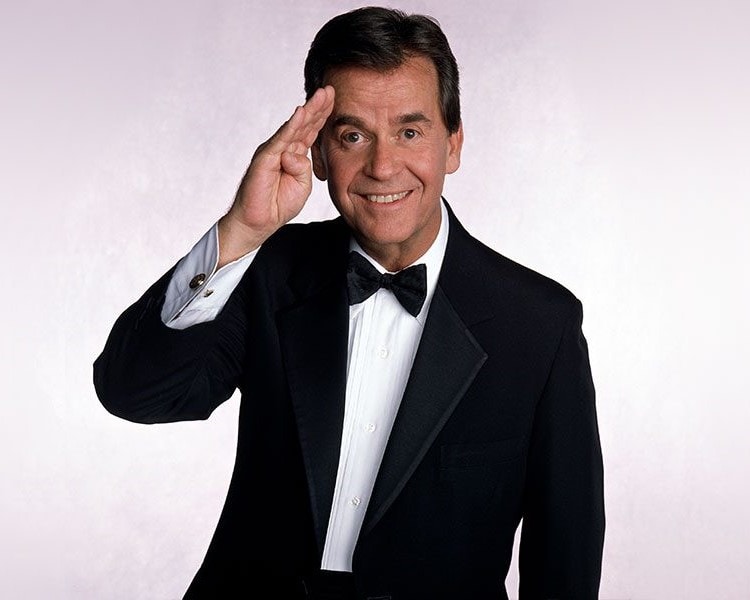
When Dick Clark passed away in 2012, he had a whopping $200 million in his bank account. He was best known for hosting two big shows: “American Bandstand” and “Dick Clark’s New Year’s Rockin’ Eve.” Throughout his long career, Clark introduced countless musical acts to American TV and radio audiences, many of whom became superstars.
Dick Clark’s Personal Life
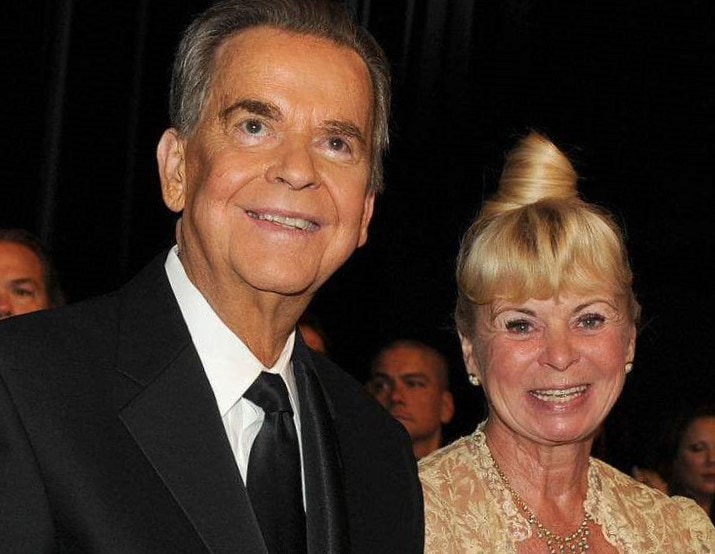
Dick Clark tied the knot three times in his life. His first marriage was to Barbara Mallery in 1952, and they had a son named Richard A. Clark. Sadly, they went their separate ways in 1961. In 1962, he married Loretta Martin, and together they had two children, Duane and Cindy. However, their marriage ended in divorce in 1971. His third and final marriage was to Kari Wigton in 1977, which lasted until he died. In addition to his children, Clark also had three grandchildren.
In April 2004, during an interview on Larry King Live, Clark shared that he had type 2 diabetes. Later, in December 2004, he was hospitalized in Los Angeles due to what was initially considered a minor stroke. Originally, it was thought he would recover without major issues. However, it was later announced that he couldn’t host his annual “New Year’s Rockin’ Eve” show, and Regis Philbin took over. Clark did return to the series the following year, but the stroke left him with difficulty speaking clearly for the rest of his life.
On April 18, 2012, Clark died from a heart attack at a Santa Monica, California hospital. He was 82 years old and had recently undergone a medical procedure to treat an enlarged prostate. Two days later, on April 20, following the approval of the required environmental permits, his body was cremated. His ashes were then scattered over the Pacific Ocean. His death certificate mentioned he had coronary artery disease when he passed away.
Dick Clark’s Early Life
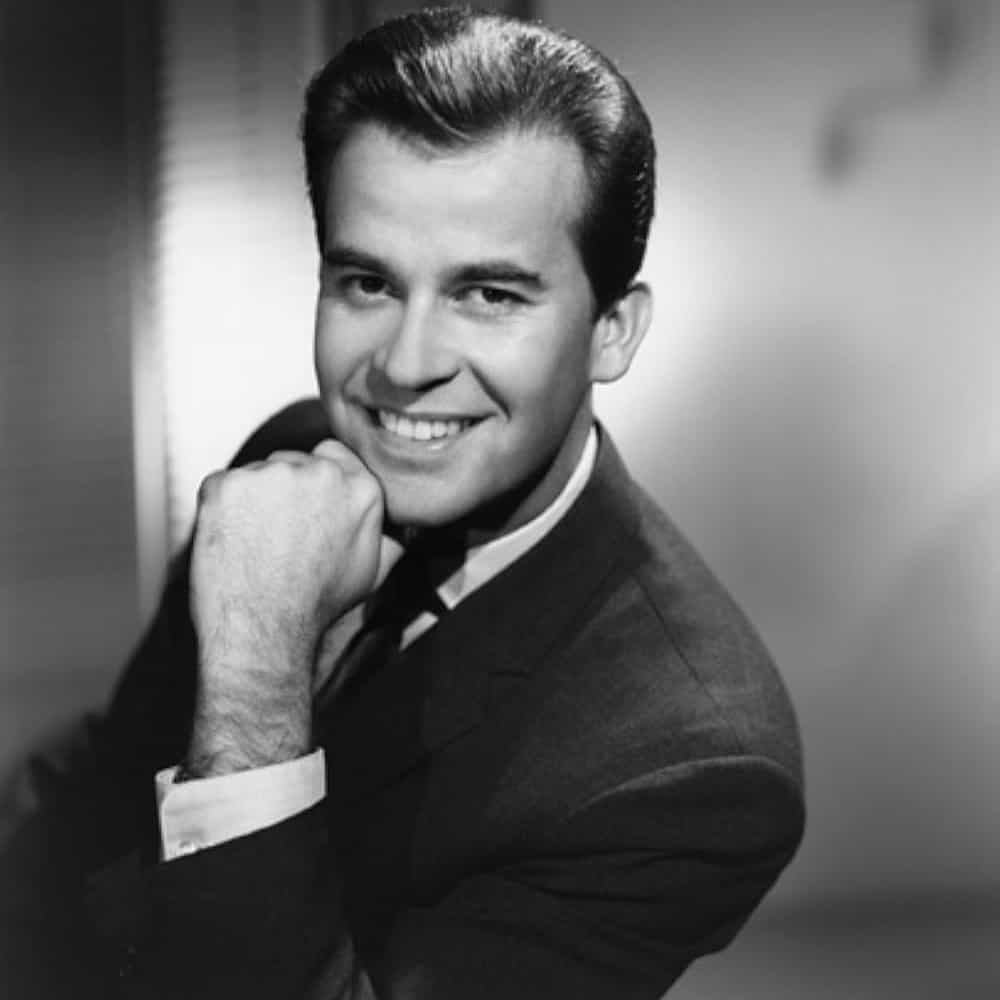
Dick Clark was born on November 30, 1929, in Bronxville, New York. He grew up in nearby Mount Vernon. He was the second child of Richard Augustus Clark and Julia Fuller Clark. Clark had one older sibling, his brother Bradley, who tragically lost his life as a pilot during World War II in the Battle of the Bulge.
Clark attended A.B. Davis High School in Mount Vernon, which later became A.B. Davis Middle School. When he was just ten, Clark decided to pursue a radio career. To make this dream a reality, he enrolled at Syracuse University, where he graduated in 1951. He earned a degree in advertising and also took a minor in radio. At Syracuse, he was part of the Delta Kappa Epsilon fraternity, Phi Gamma.
Dick Clark’s Career
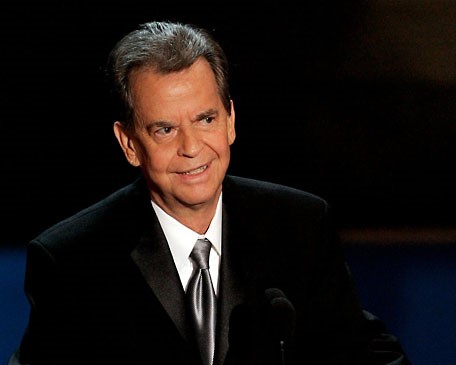
In 1945, Dick Clark started his career working in the mailroom at WRUN, an AM radio station in Utica, New York. Interestingly, this station was owned by his uncle and overseen by his father. Right from the start, he got to step in for the weatherman on vacation. It didn’t take long for him to start announcing station breaks, and he quickly made his mark in radio.
During his time at Syracuse, Clark found work at WOLF-AM, which was a country music station at the time. After finishing his degree, he briefly returned to WRUN, where he used the name Dick Clay for a while. He landed a position at WKTV, a Utica, New York television station. His initial role on TV was hosting a country music show called “Cactus Dick and the Santa Fe Riders.” Later on, he took over as a news anchor, stepping in for Robert Earle, who would later become the host of the “GE College Bowl.”
Alongside his work as an announcer on radio and television, Clark also had a hand in owning several radio stations. Between 1964 and 1978, he owned KPRO (now known as KFOO) in Riverside, California, operating it under the banner of Progress Broadcasting. In 1967, he made another acquisition, purchasing KGUD-AM-FM, now known as KTMS and KTYD, respectively, in Santa Barbara, California.
American Bandstand
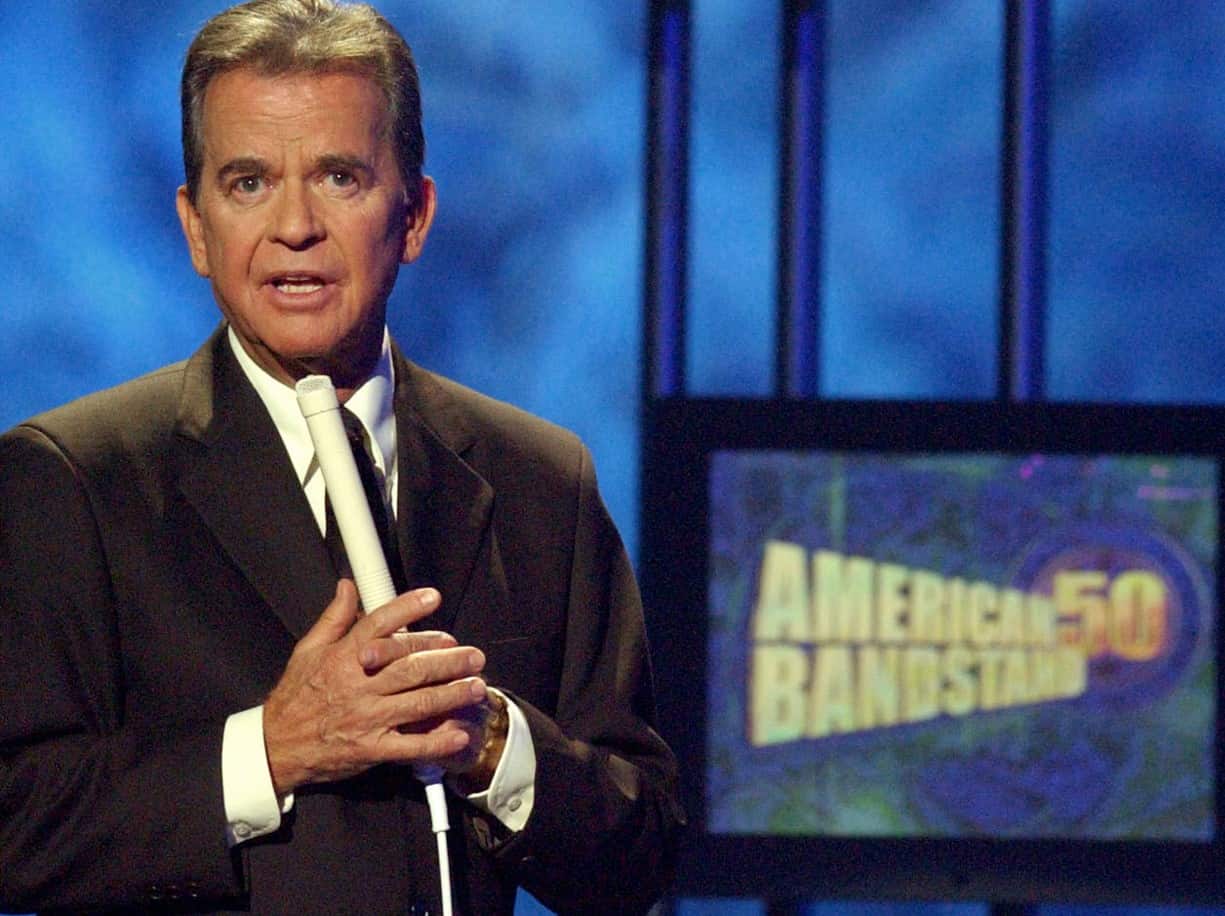
In 1952, Dick Clark moved to Drexel Hill, Pennsylvania, a suburb of Philadelphia. There, he landed a job as a disc jockey at WFIL radio station, where he adopted the name Dick Clark. Interestingly, WFIL had a TV station with the same call sign, which started airing a show called “Bob Horn’s Bandstand” in 1952.
Clark was in charge of a similar program on the radio and often filled in as the host when Horn was on vacation. However, in 1956, Horn ran into legal trouble due to drunk driving and was let go. As a result, on July 9, 1956, Clark officially took over as the show’s permanent host.
The TV show “Bandstand” got the attention of the ABC television network. They changed its name to “American Bandstand,” and it premiered across the nation on August 5, 1957. The show became a big hit, thanks to Clark’s easy connection with the live teenage crowd and the dancers. His “clean-cut, friendly image” also resonated well with television viewers.
New Year’s Rockin’ Eve
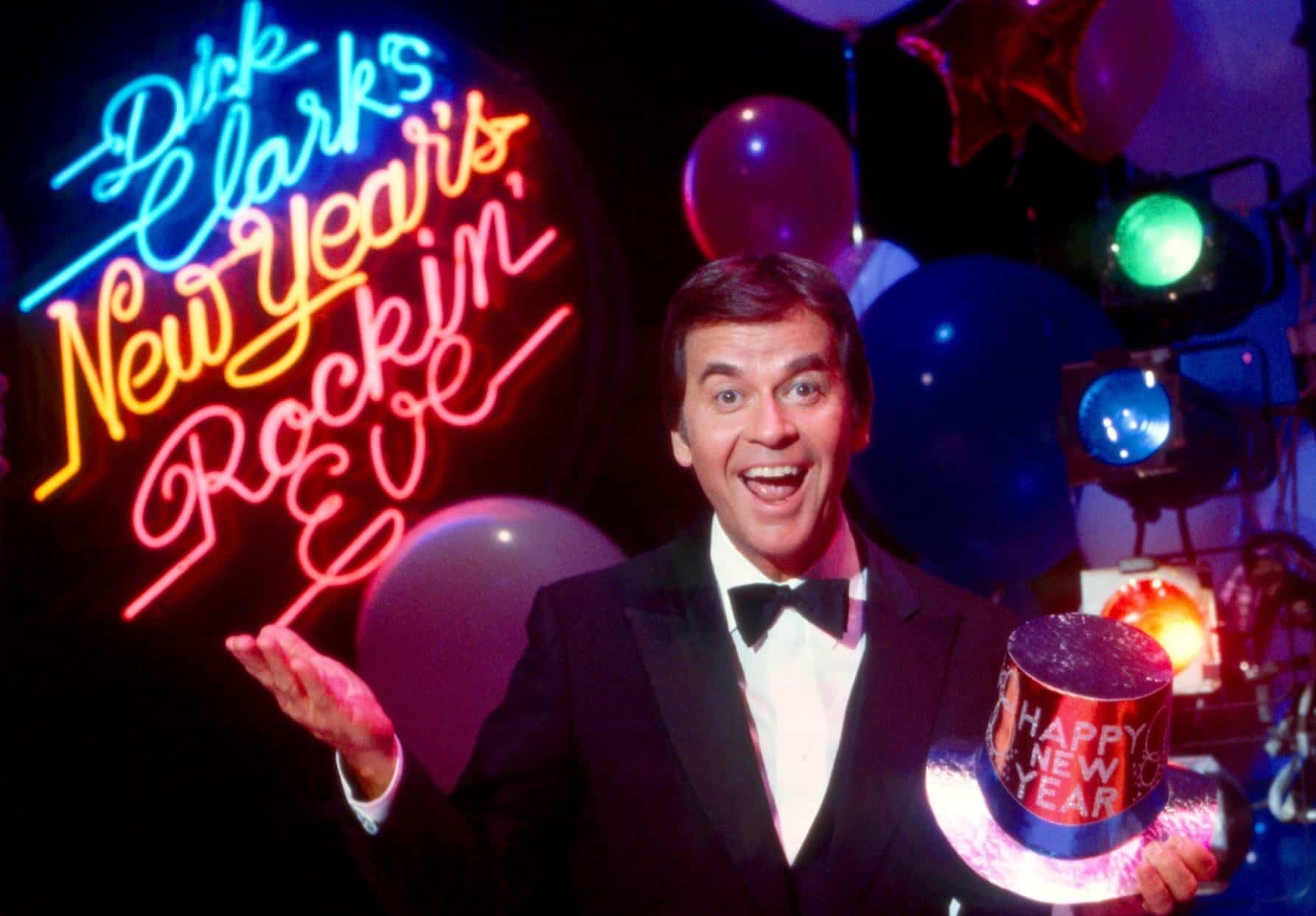
In 1972, Dick Clark launched the first-ever “New Year’s Rockin’ Eve,” a music special for NBC that featured coverage of the New Year’s Eve ball drop celebrations in New York City. Clark aimed to provide an alternative to Guy Lombardo’s New Year’s specials on CBS, which mainly featured big band music that Clark thought was outdated.
After spending two years on NBC, where the show had different hosts like Three Dog Night and George Carlin, the program switched to ABC, and Clark took over as the host. When Lombardo passed away in 1977, “Rockin’ Eve” saw a significant increase in viewership and eventually became the most-watched New Year’s Eve broadcast each year. Clark also had another role as a special correspondent for ABC News during the ABC 2000 Today broadcast, covering the arrival of the year 2000.
Game Shows
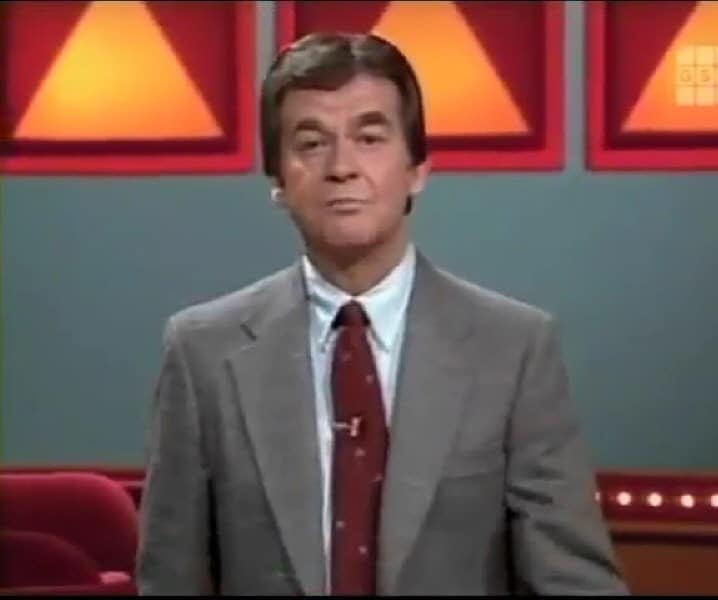
Dick Clark was the original host of “The $10,000 Pyramid,” which debuted on CBS on March 26, 1973. This show, created and produced by daytime television producer Bob Stewart, later moved to ABC in 1974. In the following years, the top prize underwent several changes, and they even created several primetime spinoff versions of the show.
When the show returned to CBS in September 1982, Clark kept hosting the daytime version for most of its run. He earned three Emmy Awards for his role as the game show host. The “Pyramid” received nine Emmy Awards for being the best game show during his tenure, second only to the twelve won by the syndicated version of “Jeopardy!” Clark’s last hosting gig for “The $100,000 Pyramid” wrapped up in 1988.
Clark took on the role of host for the TV game show “The Challengers,” which aired for just one season from 1990 to 1991. This show was a collaboration between Dick Clark’s production company and Ron Greenberg’s. During the same 1990-91 season, Clark and Greenberg also teamed up to bring back “Let’s Make a Deal” for NBC, initially with Bob Hilton as the host. Later on, the original host, Monty Hall, returned to the show.
In addition to these, Clark hosted “Scattergories” on NBC in 1993 and took on hosting duties for The Family Channel’s version of “It Takes Two” in 1997. In 1999, Clark teamed up with Bob Boden as executive producer for Fox’s TV game show “Greed.” This show aired from November 5, 1999, to July 14, 2000, and was hosted by Chuck Woolery.
During the same period, Clark also hosted another show called “Winning Lines,” created by Stone-Stanley. This show ran for six weeks on CBS, specifically from January 8 to February 12, 2000. Interestingly, Geraldo Rivera was initially set to host “Winning Lines,” but they couldn’t agree on the contract. So, CBS turned to Clark to take on the hosting duties instead.
Clark wrapped up his career as a game show host with a show he produced called “Challenge of the Child Geniuses.” This series consisted of two two-hour specials aired on Fox in May and November 2000.
Radio Shows
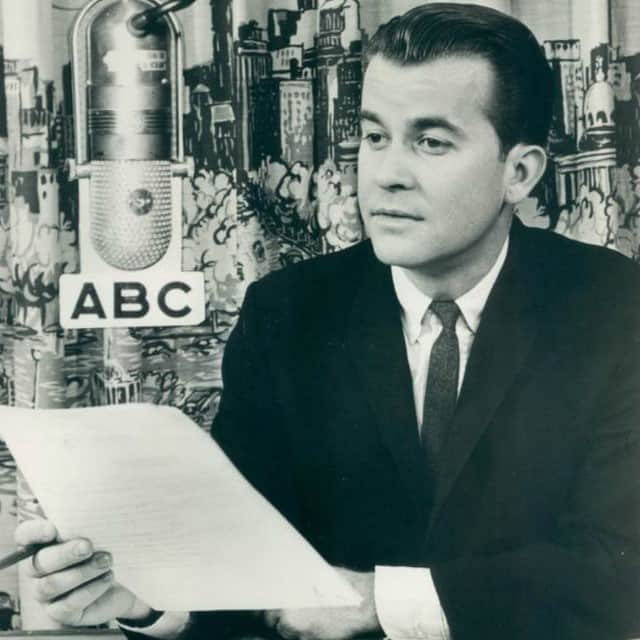
Dick Clark’s initial passion was radio, and in 1963, he started hosting a radio show called “The Dick Clark Radio Show.” Surprisingly, despite Clark’s massive popularity on “American Bandstand,” the show only managed to get picked up by a few dozen stations and ultimately ran for less than a year.
On March 25, 1972, Clark hosted “American Top 40” to replace Casey Kasem. In 1981, he introduced “The Dick Clark National Music Survey” on the Mutual Broadcasting System. This program featured the top 30 contemporary hits of the week and competed directly with “American Top 40.” Clark eventually left Mutual in October 1985, and Bill St. James and later Charlie Tuna took over the hosting duties for the “National Music Survey.”
In 1985, Clark’s United Stations acquired the RKO Radio Network. After leaving Mutual, Clark began hosting United Stations’ “Countdown America,” a role he held until 1995. On February 14, 1982, Clark began hosting his longest-running radio show, “Rock, Roll & Remember.” This four-hour program was named after Clark’s autobiography from 1976. It was co-hosted by Gene Weed, an experienced Los Angeles disc jockey in its first year. Then, in 1983, voiceover talent Mark Elliot joined Clark as a co-host. By 1985, Clark took over the entire hosting duties.
Each week, the show featured a different artist from the rock and roll era and counted down the top four songs from a particular year in the 1950s, 1960s, or early 1970s. Unfortunately, production of the show came to a halt when Clark had his stroke in 2004—however, reruns from 1995 to 2004 continued to be syndicated until USRN discontinued the show in 2020.
Dick Clark’s Controversy
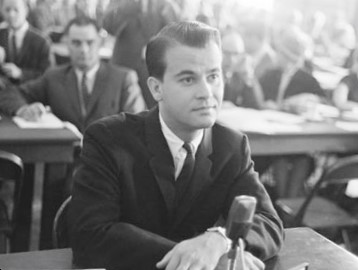
On May 2, 1960, Dick Clark finished his second day of testifying during the Payola hearings. This testimony played a pivotal role in his career, saving and reshaping it significantly. During the Payola hearings, Clark revealed that he had a financial stake in 33 different record labels, distributors, and manufacturers. These businesses reaped substantial profits thanks to the success of artists Clark had promoted, such as Danny and the Juniors and Frankie Avalon. One of these companies was Jamie Records, which played a role in making Duane Eddy a star. Clark’s initial investment of $125 in Jamie Records turned into a tidy profit of $31,700.
During Clark’s Payola testimony, what mattered most wasn’t just his denials but the fact that he had sold off all his ownership stakes in music-related businesses in the months leading up to it. He had also let go of his involvement in about 150 pop songs for which he earned royalties as a credited “songwriter.” Perhaps his cooperative stance, good looks, and famously friendly demeanor, described by the New York Times as “smooth, slim, and youthful on the witness stand,” influenced Congress to give Clark a pass while pushing for the prosecution of the less cooperative Alan Freed.
Net Worth of Other Notable TV Hosts
David Letterman’s Net Worth
David Letterman, a renowned American television personality and comedian, has been a significant figure in late-night entertainment. Originating from Indianapolis, Indiana, he first captured audiences with his unique comedic style on “Late Night with David Letterman” on NBC and later on CBS’s “The Late Show with David Letterman.” Over his decades-long career, he’s had his share of personal and professional ups and downs, from marital issues to controversies with staff members. Moreover, his ventures haven’t been limited to television; Letterman has amassed a considerable real estate portfolio, including properties in Westchester County, Martha’s Vineyard, and St. Barth’s. As of 2023, David Letterman’s net worth is estimated at around $400 million.
Groucho Marx’s Net Worth
Groucho Marx, an iconic figure in American comedy, is best remembered for his quick wit, trademark appearance, and roles in classic films alongside his brothers as part of the Marx Brothers comedy team. Born in Manhattan in 1890, he began his career in vaudeville, later transitioning to movies, radio, and even authoring several books. Despite facing challenges in his personal life, including three divorces, Marx left an indelible mark on the entertainment industry. Hosting the popular quiz show “You Bet Your Life” and appearing in numerous films like “Duck Soup” and “A Night at the Opera,” he established himself as a force to be reckoned with. Groucho Marx’s net worth was valued at $12 million, adjusted for inflation, at the time of his passing.
